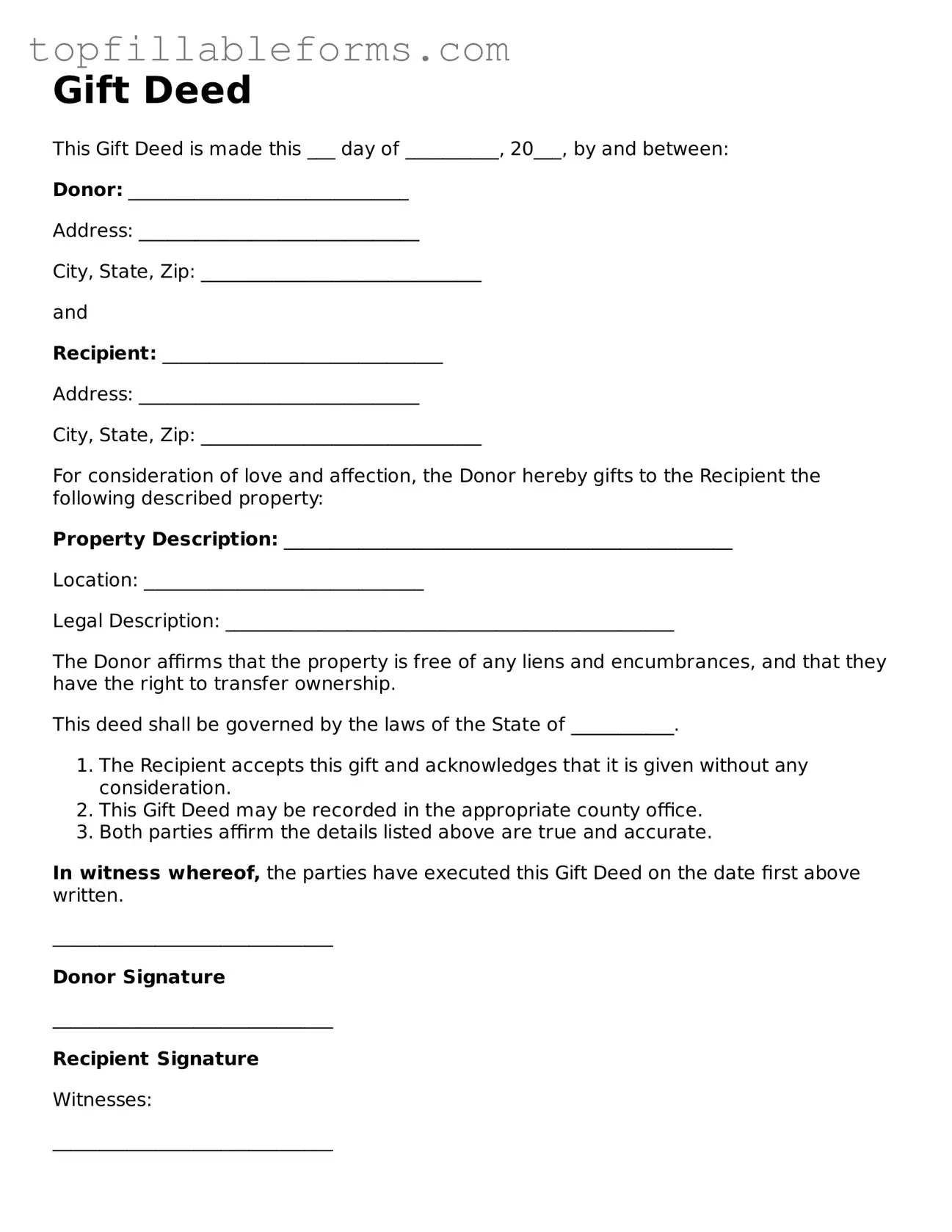Free Gift Deed Form
A Gift Deed is a legal document that facilitates the transfer of ownership of property or assets from one individual to another without any exchange of money. This form serves to formally record the intention of the giver, ensuring that the gift is legally recognized. Understanding the nuances of a Gift Deed is essential for both the giver and the recipient to avoid future disputes.
Open Gift Deed Editor Here

Free Gift Deed Form
Open Gift Deed Editor Here
Finish the form now and be done
Finish your Gift Deed online by editing, saving, and downloading fast.
Open Gift Deed Editor Here
or
▼ PDF File
